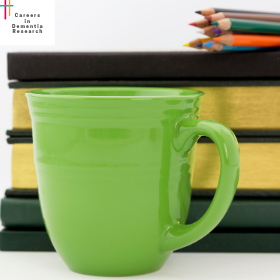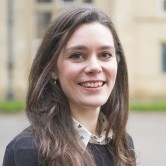The last time I was officially a student is a couple of years ago now, but it seems far longer than that. That’s not just because it seems like so much has happened since then, but also because doing a PhD whilst working as a researcher full-time makes you feel less like a student but more like having a job and doing something (big) extra on the side.
But let’s rewind to when I first started my studies in psychology (over 10 years ago if you must know). Throughout my undergraduate at the University of Manchester I had the odd jobs working in coffee shops. After a while though, you ideally want to work in the field you ultimately want to work in. I knew I wanted to do research after my studies, so I looked out for casual research posts in my third year, whilst also emailing a number of researchers in psychology and dementia at the University to see whether they had any casual work opportunities.

Finding a Research Assistant job aligned to your studies can help you with money and knowledge
Yep, you have to look around a lot and be proactive to get these types of casual posts. Whilst I’ve never studied back home, being German I know that German academia has better and clearer opportunities for undergraduate and postgraduate students in getting involved in casual research jobs – it would be great to see this more in the UK too. Even if you decide you don’t want to pursue a career in research, it’s a great way to get an understanding of what research is like, outside of the environment of small projects for a BSc or MSc.
Luckily this was a very flexible job, I learned how to conduct interviews with people living with dementia, unpaid carers, and care staff, learning from senior researchers. I could book in the interviews at times and dates that would suit both the participants and myself, in between my lectures. Ideal!
I was glad to be offered a proper contract once I’ve finished my BSc and started my MSc full-time. Another bonus of these casual research posts – you make those first connections which can lead to an actual part-time or full-time job after, as the senior researchers get to know you. I’m not saying it was easy struggling a part-time research job and a full-time Masters, but, it had more positives: For one, I got to learn so much about how research is conducted, complementing my theoretical knowledge from my studies; I earned some much needed money; and again, I could set myself up in a field I knew I wanted to go in, so it helped me make those connections and get that work experience on my CV.
Turns out, I never quit that job but had my contract renewed for about 6 years until I was offered a better job elsewhere. In fact, I enjoyed the job and topic so much (yes, dementia research!), that I decided to do my PhD on the side.
Now, a PhD is a huge challenge in its own right, and not a ‘thing on the side’. But that’s where my job came in handy, a lot of the work I’ve done could feed into my PhD, and so I could write up my thesis and papers as part of my job. Plus, I learned so much more from both working and doing my studies, much more than I would have done ‘just’ doing a PhD.
If you decide (or what I would call are lucky enough to be able) to do it this way, then effective time management becomes a necessity. To this day, I have multiple note books and to do lists, helping me manage a number of projects simultaneously. One thing that can help you saving time is writing up your thesis in what Manchester calls ‘alternative format’. So instead of writing a big thesis, which after your graduation you still have to re-write into publishable papers, your chapters are papers, and you publish along the way. That’s standard in the Netherlands, where you are expected to have a series of papers submitted and published before graduating. Now, being on the other side, it’s one of the things I recommend to my PhD students too.
Knowing how tough it is to find PhD funding, if you are in a research post and can somehow do a PhD simultaneously, I’d definitely recommend it. It’s not always easy, lots of work, but you get so much out of it too. So yes, it is totally possible to work and do your PhD!
Author

Dr Clarissa Giebel
Dr Clarissa Giebel is a Research Fellow at the University of Liverpool and NIHR ARC North West Coast. She has been working in dementia care research for over 7 years focusing her research on on helping people with dementia live at home independently for longer.
Got a question for Clarissa? Reply below

 Print This Post
Print This Post





Dear Dr Clarissa,
Good morning. I trust you are well.
Thank you greatly for your blog which has given me great hope. Thank you 🙏🏽.
I am very posionate about dementia care, having cared for people with dementia in various nursing/residential care settings. Consequently, after achieving my Level 5 in Health and Social Care, I was accepted for MSc Dementia Studies at University of Hull (online).
Thankfully I managed to complete and pass my MSc Dementia Studies program.
Throughout the duration of my MSc Dementia Studies course I also battled with cancer and other health conditions. I had surgery to remove cancer cells. I struggled physically, mentally and psychologically.
I am a fighter, a determined and passionate person, I thus refused to quit my studies or get it deferred.
This however affected my grades. I passed with a grade of 52%.
I am passionate about getting involved in dementia researches. I want to do my PhD in Dementia related courses, but no university in London (I live in London) will accepted me with an MSc grade of 52%.
Do you think I can get an Integrated PhD program in dementia research?
Do you have any advice for me?
Thank you so very much.
My kindest regards,
Anthony
Dear Dr Clarissa,
Sorry, it me again, Anthony Ohio.
I am not sure if this allowed. I don’t want to be breaking the rules here.
But I want to say that if you wish to reply my earlier correspondence directly to me (much appreciated) orwish to give me advice directly, my email is:
tony_ohio@yahoo.com
Thank so very much.
My kindest regards,
Anthony